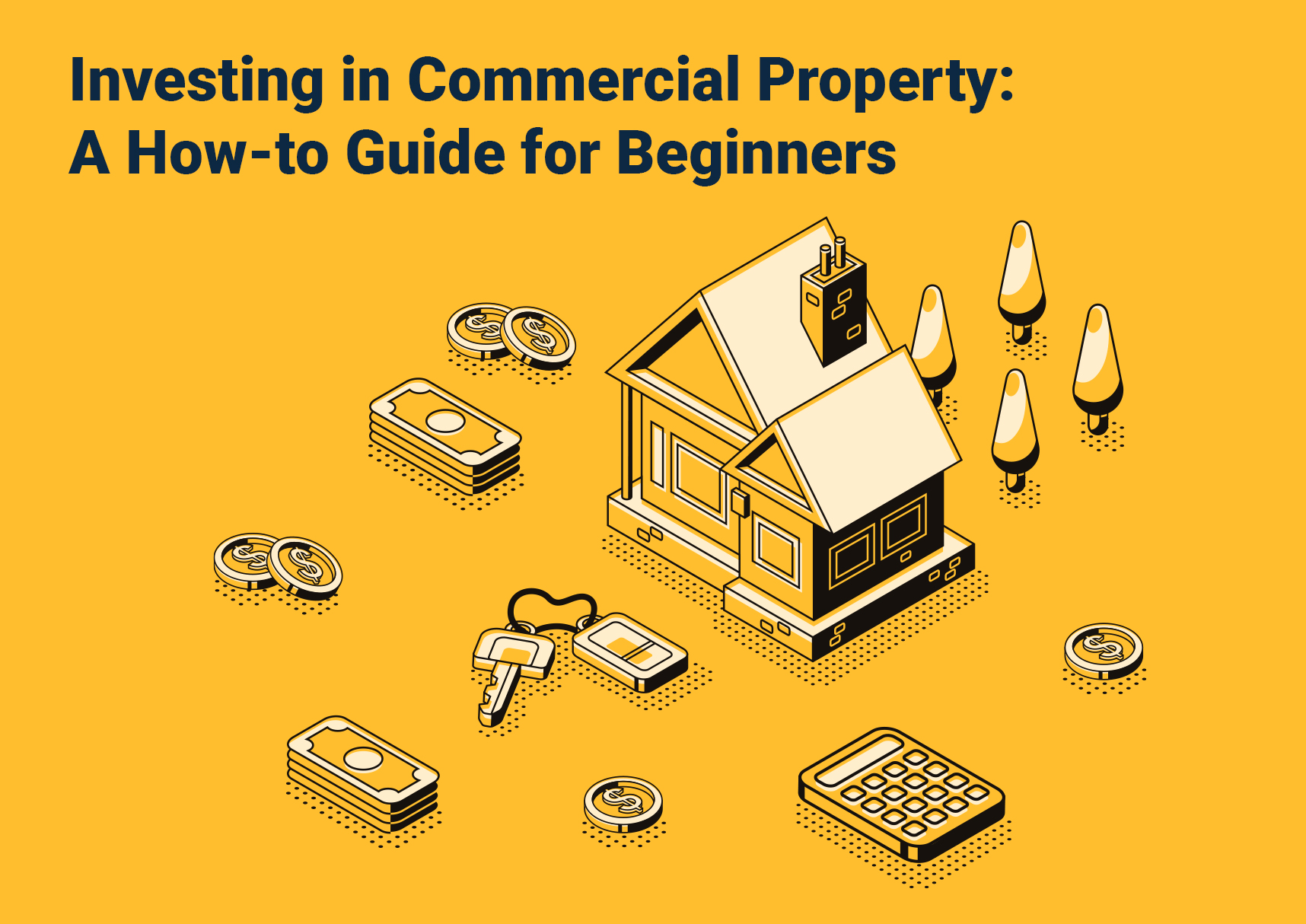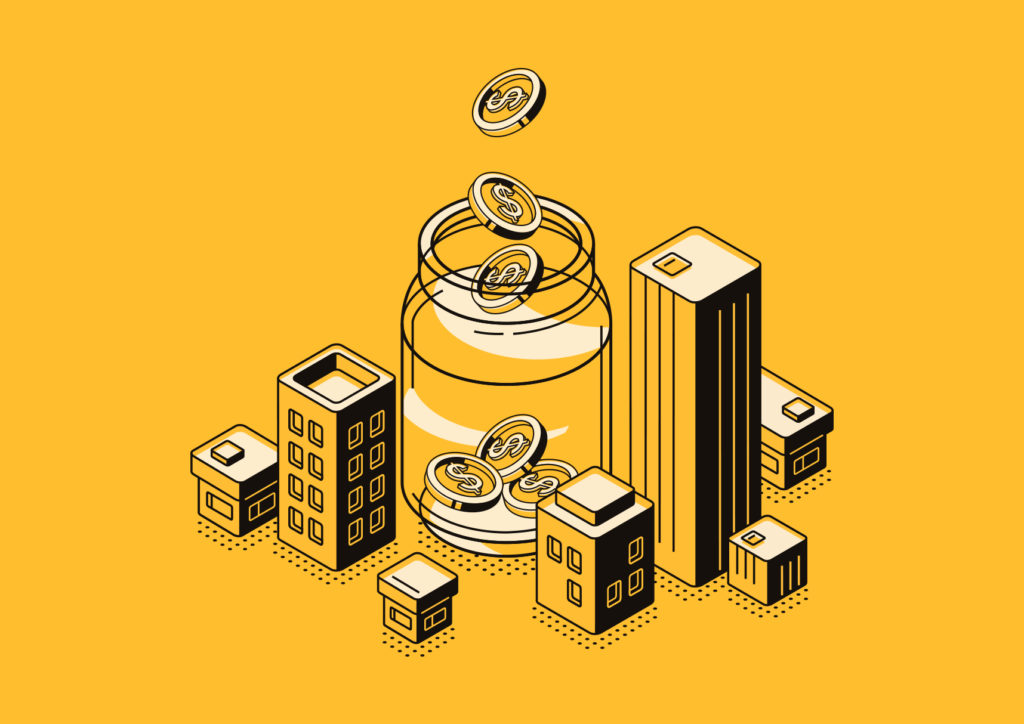Investing in Commercial Property: A How-to Guide for Beginners

Investing in commercial property is becoming increasingly popular thanks to its growth potential, consistent returns and passive income. Commercial real estate typically covers retail, hospitality, office, warehouses and mix-use properties.
Compared to the residential real estate market, commercial property can offer investors a number of advantages. From lower vacancy risks to higher income potential.
In this article, we take a look at some of the advantages of investing in commercial property. As well as direct and indirect ways to invest and the ways to earn money from investing in commercial property.
What is a Commercial Property?
Commercial property includes property that people use for business activities. In the UK, commercial property is categorised under different classes. Which include drinking establishments, financial and professional services and hotel and leisure. Investing in commercial property UK can include categories like warehouses, rental units in shopping centres, offices, leisure centres and airports.
The commercial property market tends to be more dynamic than the UK residential property market. While also being more volatile and having lower liquidity. Commercial investment properties are hugely diverse and this diversity is one aspect that makes them attractive to many investors.
How Can I Invest in Commercial Property?
Just like residential property, there are two main ways to make money from investing in commercial property. – The income generated from renting the property and capital gains on the increase in value when it comes to selling the property.
As well as purchasing a property themselves, investors can invest in commercial property funds. Which are made up of diversified managed property portfolios. While a direct investment has the highest possible potential yields, it requires more hands-on work. Indirect commercial property investments are a good option for investors seeking long-term growth.
- Direct Investment
With a direct investment, the investor buys a commercial property for buy-to-let. Or they purchase a building to redevelop and sell. This option is usually best for those that want to have a direct influence over the building and their strategy.
As well as making a direct investment individually, an investor can also make an investment with others. This type of direct investment involves purchasing a share in a commercial property. Usually through investment funds that offer portfolios of properties to many investors. This approach is more hands-free but still involves a brick-and-mortar investment.
- Direct Commercial Property Funds
Investors can look to brick-and-mortar funds in the form of a unit trust or investment trust. In this scenario, an investment company owns the commercial building and divides it out to smaller investors. As an investor, you invest directly in the building via the company.
If you purchase a share in a commercial property, these types of funds make commercial property accessible to small investors. Considering the investment is through a collective investment scheme like OEIC. The trust invests in a portfolio of commercial properties which spreads the risk.
- Indirect Commercial Property Funds
Indirect commercial property investments are schemes that invest in shares of property companies that are on the stock market. This way of investing is much more flexible with less of a need for start-up capital than with a direct investment. As you invest in companies on the stock market, it’s easier to diversify the portfolio. This is done in order to protect from market volatility.
Buying shares in a company with a portfolio of commercial properties can include a publicly traded homebuilder or real estate investment fund (REIT). REITs are run by managers who buy and sell properties. Investors can generate income as rental yield which is distributed to shareholders as dividends. As this investment is through the stock market, it carries the same risks as investing in other stocks.
Read more about the Property Vs. Stocks debate in this article.
How Much Money do you Need to get into Commercial Real Estate?
Commercial properties can cost millions to build or purchase and this is often out of reach for most smaller investors. Many investors will invest in commercial property through investment funds like units trusts or investment trusts.
Unit trusts or investment trusts pay returns based on growth in value and rental income. If you buy shares in property-related companies, they’ll pay you returns. This is done based on the growth in value of shares and the payment of dividends.
That said, you do not need to be incredibly wealthy to invest in commercial property. Because of the different options available it’s possible to invest in a lump sum in a property fund, and you can usually start with around £500.
How Can I Earn Money on Commercial Property Investment?
If you invest directly in commercial property there are a couple of ways you can earn money.
- Buy-to-Let
The first is to lease the property to tenants, as with a normal buy-to-let set up. Buy-to-let interest rates are higher than average. And an investor will normally need a deposit of 20-40% of the property value. Buy-to-let commercial property is the most common strategy for commercial property investors. Uusually because, like with residential property, it is relatively simple.
- Renovating to Lease or Sell
This type of investment usually requires a redevelopment period. An investor will usually have to give a large amount of the cash upfront. As well as have alternative sources of cash flow during the redevelopment period. While the building cannot be rented out to tenants. Even though there can be periods where there is no income, upgrades and renovations can greatly enhance the profitability of a building. As well as allow the investor to target higher-value tenants.
Can you Make Money Buying a Commercial Property?
In October 2022, the average commercial yield in the UK hit 5.23%. A good yield in commercial property is usually 5%. Some classes of buildings enjoy much higher yields and those above 8% would be classed as exceptional.
What you need to Consider Before Investing in Commercial Real Estate
 Just like the residential property market, the type of commercial property you invest in will have a great impact on the profitability of your investment. You can choose between classifications like office, retail, hospitality or industrial and each will come with pros and cons. Here are some of the things you should consider before choosing the commercial property investment sector of interest:
Just like the residential property market, the type of commercial property you invest in will have a great impact on the profitability of your investment. You can choose between classifications like office, retail, hospitality or industrial and each will come with pros and cons. Here are some of the things you should consider before choosing the commercial property investment sector of interest:
- Personal Experience
Before investing in any commercial property, you should review your personal experience. This is to make sure you understand the type of tenants you will attract. And the characteristics of that market property and the types of premises. Maybe you have experience in the area of a certain business market so understand what these types of tenants look for in a commercial property, or maybe you have previously refurbished a shop or office.
- Market Trends
By staying up to date on wider market trends, you can spot up-and-coming areas. Such as those that will enjoy new transport links, or office blocks in an up-and-coming commuter town or areas of town that are undergoing regeneration that might be hot-sports for start-ups and creative businesses.
- Location
As well as the type of commercial property, location is one of the main factors to take into account when investing in commercial property. The right property in the right location will help you to acquire higher rental yield and greater capital growth potential.
In the last few years, the UK has seen many high-profile businesses move out of areas like London and to other cities like Mancehster, Liverpool and Leeds. While interest in London will always remain high, often better deals and opportunities are outside of the capital.
- Market Sector Performance
Before making an investment you should carefully consider the opportunities and disadvantages of investing in commercial property sectors.
- Retail Market
While the last couple of years have seen fewer investment in retail properties due to the rise of online shopping, many businesses are implementing experiential shopping experiences to bring new activity to the retail property market, meaning new opportunities for investors in this sector.
- Industrial
In the UK there is generally steady demand for industrial space. Industrial premises are in demand and come with good rental and sale factors. However, with the ongoing impact of Brexit, it could be that the UK sees less industrial activity. The full effects are not completely realised.
- Hospitality
Commercial property in the UK in the hospitality sectors, such as hotels generally generate some of the highest yields (alongside industrial commercial property). While this sector took a significant hit over the Covid pandemic, it has bounced back and is expected to be in high demand in the coming years.
- Office
In the office space sector, something commercial property investors will need to consider is how the rise of remote and hybrid working will impact commercial property rents. With remote and hybrid working on the rise, some companies have taken their employees completely remote, while others are firmly committed to the office. Many companies and occupiers are currently considering whether they need more or less space in their offices.
Are commercial properties good investments?
When investing in commercial property vs residential property, one thing that makes the former more attractive is that in certain areas, prime yields for commercial properties can exceed those of residential properties. There is also big potential for capital gains in the commercial real estate sector.
One of the benefits of investing in commercial property is that lease agreements are usually longer than residential shorthold tenancies. The average lease length for a UK office is eight years, which means relatively stable income for a long period of time.
In recent years changes in residential tax laws have negatively impacted residential buy-to-let landlords and led many investors to consider commercial property investment. As well as other benefits of renting commercial properties, the responsibility of repair and maintenance is on the leaseholder which can make managing an investment more economical.
One downside of commercial property investment is that mortgage rates tend to be higher, as there is a risk that tenants default on their rent, although this will depend on a range of financial factors.
Is Buying Commercial Property Hard?
Any guide to investing in commercial property needs to outline the pros and cons of investing in this area of the property market. Today, it is not especially hard to purchase commercial property. The process is only slightly more complex than a residential property investment. However, there is much crossover. And any investor that has experience in residential property sector should be well equipped to deal with the demands of the commercial property sector.
Whether you’re new to investing in the commercial property market or are looking to get your first foot through the door, commercial real estate can deliver high yields, capital gains and is an attractive option with the squeeze on residential property landlords. To find out more about investing in commercial property, get in touch with our experts.

